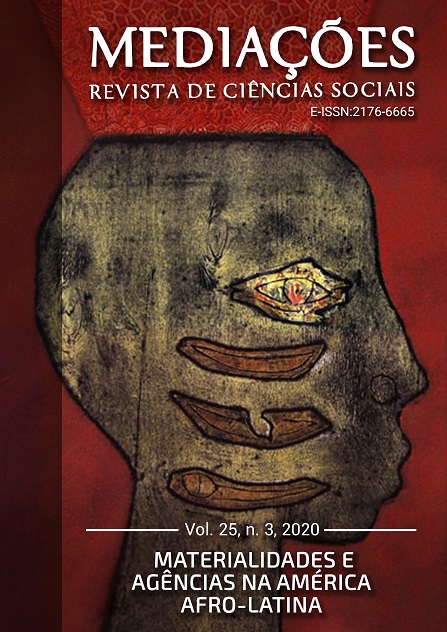The indebted subject as doppelgänger of the entrepreneur of the self: subjectification by debt in the crisis of neoliberalism
DOI:
https://doi.org/10.5433/2176-6665.2020v25n3p675Keywords:
Entrepreneur of the self, Indebted subject, Subjectification, Doppelgänger, NeoliberalismAbstract
Assuming the Marxist intuition of linking subjectivity and work, we take the foucaultian path to think neoliberalism as a governmental reason that produces its own functional subjectivity, the entrepreneur of the self, who mobilizes the essence of the market through competition. Moving forward through Lazzarato's critical approach, taking into account financialization and the society of control we come across with the indebted subject as the main subjective product of neoliberalism. Then we introduce the concept of Doppelgänger to think the indebted subject as the double of the entrepreneur of the self, forming a constitutive relationship between these similar opposites. Subjectification occurs through this process that incarnates the conceptual characters of the neoliberal reason simultaneously, forming a disjunctive synthesis that shows the paradoxical nature of neoliberalism and the limit of its promises. Finally, we briefly explore Lazzarato’s hypothesis that the appearance of the indebted subject would be a replacement of the entrepreneur of the self (rather than simultaneous), which would go along with the authoritarian or fascist tendency of current capitalism; but, ultimately, we end up arguing that, with the notion of Doppelgänger and the duplicity of the characters, we are facing a neoliberal continuity, even if “authoritarian”.Downloads
References
COCCO, Giuseppe; CAVA, Bruno. New neoliberalism and the other: biopower, anthropophagy, and living money. London: Lexington Books, 2018.
DELEUZE, Gilles. Conversações. São Paulo: Editora 34, 1992.
DELEUZE, Gilles. Foucault. Tradução de Claudia Sant' Anna Martins. São Paulo: Brasiliense, 1991.
DELEUZE, Gilles; GUATTARI, Félix. O Anti-Édipo: capitalismo e esquizofrenia. Tradução de Luiz B. L. Orlandi. São Paulo: Editora 34, 2010.
DELEUZE, Gilles; GUATTARI, Félix. O que é a filosofia? São Paulo: Editora 34, 1992.
FOUCAULT, Michel. Nascimento da biopolítica. Curso no Collège de France (1978-1979). São Paulo: Martins Fontes, 2008.
GAGO, Veronica. A razão neoliberal: economias barrocas e pragmática popular. São Paulo: Elefante, 2018.
GAGO, Verónica; CAVALLERO, Luci. Uma leitura feminista da dívida: vivas, livres e sem dívidas nos queremos. Porto Alegre: Criação Humana, 2019.
GRAEBER, David. Dívida: os primeiros 5.000 anos. São Paulo: Três Estrelas, 2016.
HAN, Byung-Chul. Sociedade do cansaço. Petrópolis: Vozes, 2015.
HARDT, Michael; NEGRI, Antonio. Assembly: a organização multitudinária do comum. Tradução de Lucas Carpinelli e Jefferson Viel. São Paulo: Editora Filosófica Politéia, 2018.
HARDT, Michael; NEGRI, Antonio. Empire. Cambridge: Harvard University Press, 2000.
HUR, Domenico Uhng. Deleuze e a constituição do diagrama de controle. Fractal: Revista de Psicologia, Niterói, v. 30, n. 2, p. 173-179, maio-ago. 2018.
LAGASNERIE, Geoffroy de. A última lição de Michel Foucault. São Paulo: Três Estrelas, 2013.
LAZZARATO, Maurizio. Fascismo ou revolução: o neoliberalismo em chave estratégica. Trad. Takashi Wakamatsu e Fernando Scheibe. Rio de Janeiro: n-1 editora, 2019a.
LAZZARATO, Maurizio. La fabrique de l’homme endetté: Essai sur la condition néolibérale. Paris: Éditions Amsterdam, 2011.
LAZZARATO, Maurizio. Le capital déteste tout le monde: fascisme ou révolution. Paris: Éditions Amsterdam, 2019b.
LAZZARATO, Maurizio. O governo do homem endividado. Rio de Janeiro: n-1 editora, 2017.
LAZZARATO, Maurizio. Signos, máquinas, subjetividades. Rio de Janeiro: n-1 editora, 2014.
MARX, Karl. O capital: crítica da economia política. Tradução de Rubens Enderle. São Paulo: Boitempo, 2015. Livro I: O processo de produção do capital.
NIETZSCHE, Friedrich. A genealogia da moral. Tradução de Paulo César de Souza. São Paulo: Companhia das Letras, 2009.
PEREIRA, Paula Cardoso. O ranking do homem endividado: sobre modos de subjetivação a partir do novo Cadastro Positivo. In: SIMPÓSIO INTERNACIONAL LAVITS, 6., 2019, Salvador. Anais [...]. Salvador: LAVITS, 2019. Disponível em: http://lavits.org/wp-content/uploads/2019/12/Pereira-2019-LAVITSS.pdf. Acesso em: 10 abr. 2020.
ST-GERMAIN, Philippe. Doubles and doppelgangers: religious meaning for the young and old. Observatoire de L'imaginaire Contemporain,2010. Disponível em: ttp://oic.uqam.ca/fr/publications/doubles-and-doppelgangers-religious-meaning-for-the-young-and-old. Acesso em: 27 fev. 2020.
STRIKE DEBT. The debt resistors operations manual. New York: Members of the Strike Debt assembly, 2012. Disponível em: https://strikedebt.org/The-Debt-Resistors-Operations-Manual.pdf. Acesso em: 15 fev. 2020.
VARDOULAKIS, Dimitris. The return of negation: the doppelgänger in Freud’s “The ‘Uncanny’”. SubStance, Madison, v. 35, n. 2, p. 100-116, 2006.
ŽIVKOVIĆ, Milica. The double as the "unseen" of culture: toward a definition of doppelganger. Facta Universitatis: Linguistics and Literature, Niš, v. 2, n. 7, p. 121-128, 2000.
Downloads
Published
How to Cite
Issue
Section
License
Copyright on articles published in Mediações belongs to the author(s): in the case of partial or entire republication of the original publication, we ask author(s) to indicate the original publication in the periodical.
Mediações uses the Creative Commons Attribution 4.0 International license, which allows Open Access, enabling any user to read, download, copy and disseminate its content so long as adequately referenced.
The opinions expressed by the author(s) are their sole responsibility.
































